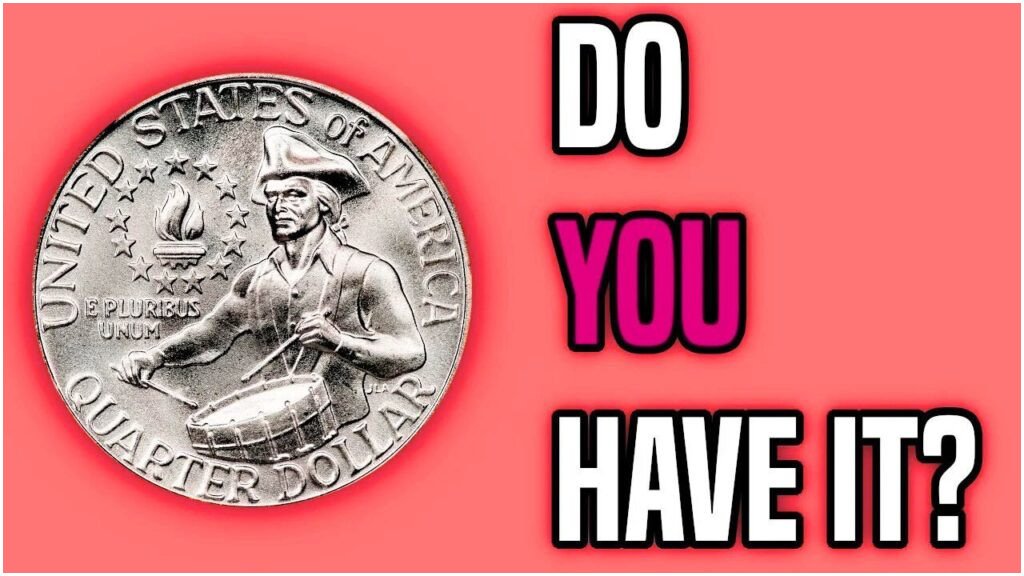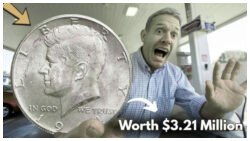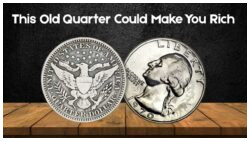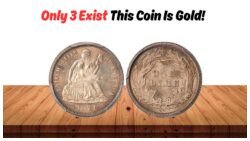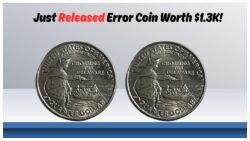Rare Bicentennial Quarter – The idea that a simple quarter — a coin most of us barely glance at — could be worth $1 million may sound too good to be true. But for coin collectors and numismatists, this is not a fantasy. Among the most talked-about coins in American history is the Bicentennial Quarter, released in 1976 to celebrate the 200th anniversary of the United States. While most of these quarters are common and only worth their face value, a few rare variants have caught the eyes of collectors and are believed to be worth as much as $1 million due to their rarity, condition, and minting errors. This article will guide you through what makes these coins special, how to identify them, and why some of them are still circulating in pocket change today. So before you dismiss your spare change, here’s what you need to know.
What Is the Rare Bicentennial Quarter?
The Bicentennial Quarter was introduced as part of the 1976 Bicentennial coin series, celebrating 200 years of American independence. It features a special reverse design with a colonial drummer and a torch encircled by 13 stars — a tribute to the original 13 colonies.
Key Features:
- Obverse (Front): Portrait of George Washington (standard).
- Reverse (Back): Colonial drummer, Liberty torch, and 13 stars.
- Mint Year: All quarters read “1776-1976” instead of a single year.
- Mint Marks: “D” (Denver), “S” (San Francisco), “P” (Philadelphia).
What Makes a Bicentennial Quarter Worth $1 Million?
Most Bicentennial quarters are worth only $0.25. But a select few have extremely rare characteristics that make them desirable to collectors, such as:
Rare Attributes That Increase Value:
- Off-metal errors (struck on 40% silver planchets).
- Proof coins mistakenly released for circulation.
- Double die errors on the obverse or reverse.
- Deep Cameo mirror finishes.
- Uncirculated MS-68 or higher grading.
High-Value Rarity Chart:
| Feature | Rarity Level | Approx. Value |
|---|---|---|
| Standard Bicentennial Quarter | Common | $0.25 |
| 40% Silver Proof (S Mint) | Rare | $10–$50 |
| Double Die Error | Very Rare | $500–$1,000+ |
| MS-68+ Graded Coin | Extremely Rare | $5,000–$10,000+ |
| Off-Metal Mint Error | Ultra Rare | $100,000–$1,000,000 |
How to Identify a $1 Million Bicentennial Quarter
If you suspect you may have a rare Bicentennial Quarter, use the following checklist to examine your coin:
Visual Checklist for Rarity
- Check the edge: Is it a silver coin or copper-nickel?
- Inspect under magnification: Look for doubling on the date or design.
- Mint mark: San Francisco (S) coins are usually proof or silver.
- Weight test: Use a digital scale (silver planchets weigh 5.75 grams).
- Condition: Look for coins with no wear, scratches, or discoloration.
Where You Might Still Find One
Despite being nearly 50 years old, many Bicentennial quarters are still in circulation today. Keep your eyes open in:
- Grocery store change
- Coin-operated machines
- Tip jars
- Garage sales and flea markets
- Old coin rolls from banks
Why These Coins Are Still Circulating
With over 1.6 billion Bicentennial quarters minted, it’s no surprise that they remain common. But due to their celebratory nature, many people saved them as keepsakes. Some rare errors, however, slipped through the mint unnoticed.
Reasons Rare Quarters Still Exist in Circulation:
| Cause | Description |
|---|---|
| High mintage numbers | Over 1.6 billion made, many still used today |
| Collector ignorance | Owners unaware of rare features |
| No face value increase | Most people treat them as regular quarters |
| Proof coins accidentally released | Some high-value coins entered circulation unintentionally |
| Errors unnoticed for decades | Rare planchet/minting errors often go undetected |
How to Get Your Bicentennial Quarter Appraised
If you think you’ve struck gold (or silver), it’s worth getting your quarter professionally appraised. Here’s how:
Appraisal Steps
- Do your own research – Compare with online coin catalogs.
- Use a digital scale and magnifying glass – Check weight and details.
- Visit a certified coin dealer or show – Professionals can confirm authenticity.
- Submit to PCGS or NGC – These are the top coin grading companies.
- Check eBay or auction results – See what similar coins are selling for.
Recommended Resources
- PCGS (Professional Coin Grading Service)
- NGC (Numismatic Guaranty Company)
- Heritage Auctions
- Red Book of U.S. Coins
Real-Life Stories: Million-Dollar Finds
There have been credible stories and auction records of rare Bicentennial Quarters fetching astonishing prices:
- A double die silver Bicentennial quarter graded MS-68 fetched $120,000 in a private sale.
- A mint error quarter struck on a nickel planchet was appraised at $250,000.
- Rumors exist of an off-metal Bicentennial quarter fetching over $1 million, though the details remain private.
The Bicentennial Quarter is more than just spare change — it could be a hidden treasure. While most are common, a few with minting errors, high grades, or silver content could be worth a fortune. Before you spend your quarters, take a closer look. That simple piece of metal might be your unexpected jackpot.
How can one identify the rare bicentennial quarter worth $1 million?
Look for a specific mint mark and condition.
Where was the rare bicentennial quarter found, and why is it valuable?
It holds historical significance and is highly sought after by collectors.

